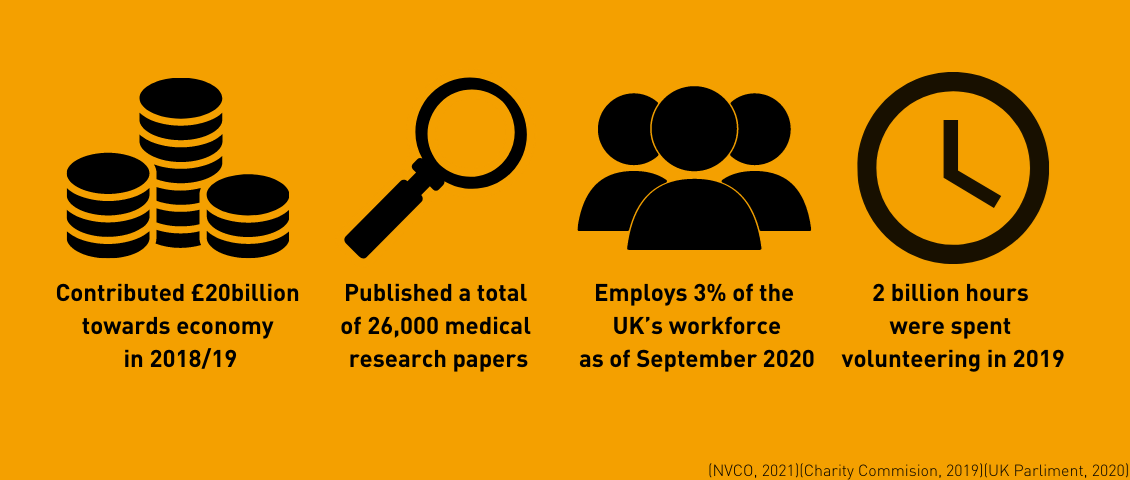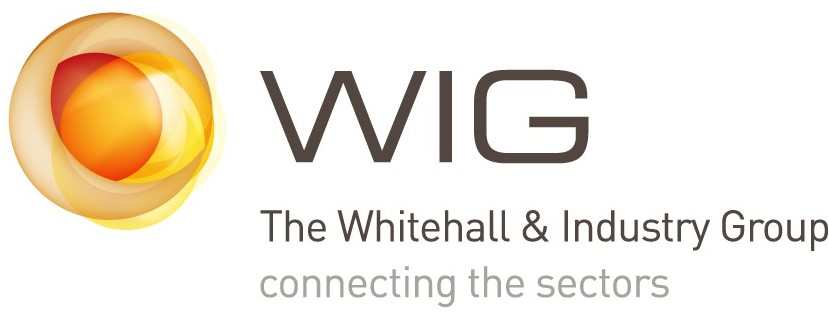There are approximately 169,000 registered charities in England and Wales – all making vital contributions to the economic, social, and political states of the nation and even, internationally. Charities are driven by purpose and are particularly well placed to respond to social challenges facing the UK. They provide essential services to communities, fund ground-breaking research, raise vital awareness of their cause areas and have the potential to build bridges and unite individuals and sectors through the work that they do.
As part of UK Charity Week, we’re highlighting the impact the charity sector has on UK society, the unique insights they can provide, which other sectors might find difficult to obtain and the importance of cross-sector collaboration to drive change.

Collaboration in action
Through conversations with WIG members and the recent report, The Great British Talent Swap, led by The Leadership Council in partnership with Pilotlight, here are just a few examples of how collaborating with a charity can make a difference to society, and those working in the private or public sectors.
“For WorldSkills UK, collaboration is core to both raising standards in apprenticeships and technical education and delivering the skills industry needs now and in the future. By acting as a convener between business, education, and government, it helps to address current and future skills shortages across the UK. WorldSkills UK’s unique position presented a recent opportunity to partner with Autodesk - a leading global 3D design software developer - to develop a pilot skills programme to help meet the demand for more skilled workers in the digital construction sector”.
- Gavin Miller, Head of Corporate Partnerships, WorldSkills UK, WIG member
“With the charity sector, we are already working with and connected to four and a half thousand small causes at the local level. We have partnerships with Mind and have helped Hubbub to launch 50 new community initiatives, which will be 250 by the end of 2022. The thinking, the insights, the conversation and the ability that these charities bring to those issues is very strong and we would be weaker without them”.
- Steve Murrells, CEO, the Co-op Group, WIG member (from The Great British Talent Swap)
“We recently partnered with organisations from across the charity and policy sectors, as well as many other organisations and individuals, including academics, doctors and economists to call on the government not to cut Universal Credit by £20-a-week. Each of these sector voices brought new reasoning to the table - building and strengthening the case. Despite us being unsuccessful in seeing the £20-a-week kept, this collaboration and the compelling evidence we provided, led the government to invest in Universal Credit to support working families. Whilst this does not mitigate the loss for the majority, and offers nothing for families out of work, it is a substantial investment in the adequacy of our social security system”.
- Joseph Rowntree Foundation, WIG member
“The Washing Machine Project is a charity that looks to take a burden off women in a core area of their lives. 70% of the world’s population lack access to an electric washing machine. When we started talking to them, we thought we could give them some money, but it quickly turned into a conversation on how we can work with them on engineering, to create new solutions.
Our engineers are using their brains in a different way than they do on a day-to-day basis. They’re loving the challenge. They’re engaged and they’re happy doing it. But, even more importantly than that, they’re tackling a global problem”.
- Rebecca Dunn, Head of Sustainability, Sepctris plc (from The Great British Talent Swap)
“One of the Citi Foundation’s priorities is financial inclusion and Citi’s microfinance unit is focused on delivering financial services to the segment of the population who are largely unbanked, financially excluded. Issuing reloadable, stored value cards was a solution to address this challenge, but the Microfinance team soon partnered with mobile phone companies to offer basic financial services using mobile phones!
By bringing together the technology of a large corporation, the financial resources of its Foundation and the insight and reach of a non-profit, a test case could be implemented. Once this is shown to work as a commercially viable solution that delivers societal value, we also have the knowledge, skills and partnerships in place to scale the service”.
- Mei Li Powell, Charity COO, previously at Citi, WIG member (from The Great British Talent Swap)
We’d like to thank each and every one of the charitable organisations, who help us bring the sectors together. Through your contributions, and the critical insights and intelligences you provide we can tackle society’s biggest challenges together. At WIG, we’ll continue to build on our work in bringing charities to the table, championing their voice and expertise.
If you’re interested in discussing opportunities for your talent to gain experience in or learn from the charity sector, please get in touch with our talent team.
If you’re a charitable organisation interested in becoming a WIG member, you can find out more here.
References
Charity Commission. (2019). The value of the charity sector
NCVO. (2021). UK Civil Society Almanac.
The Leadership Council, in partnership with Pilotlight. (2021). The Great British Talent Swap.
UK Parliment. (2020). Charity-funded Medical Research
Originally published: 09/12/2021

